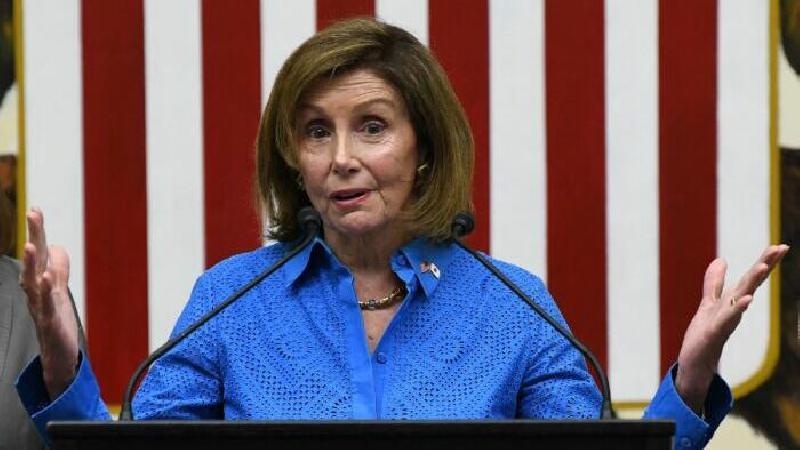Speaker of the House Nancy Pelosi (D-Calif.) on Oct. 18 brushed aside calls by a member of her caucus for new leadership.
The comments in question were made by Rep. Elissa Slotkin (D-Mich.), who said during a TV appearance that the party needs “new blood” to lead it moving forward.
“I have been very vocal, including with my own leadership in the House, that we need a new generation. We need new blood, period, across the Democratic Party, in the House, the Senate, and the White House,” Slotkin told NBC’s “Meet the Press.”
“I’ve said I think we need new leaders. I would love to see some Midwestern leaders in there, right? That’s been important to me, is to reflect the middle of the country,” she said. “We’re here too, and I do think new blood is a good thing.”
During a later appearance on MSNBC’s “Andrea Mitchel,” Pelosi acceded the need for some “generational change,” but emphasized the importance of experienced leaders.
“Yes, we need generational change,” Pelosi said. “Of course we do. But in some cases there’s no substitute for experience.”
Asked what she would tell members of her caucus, particularly younger members agitating for a bigger role in the 118th Congress, Pelosi replied, “Win, baby. Just win.”
“If that’s what you have to say to win, fine, and we will not in any way do anything but [be] totally supportive-mobilization-wise, message-wise, money-wise-for those people to win their races,” she added.
Younger Members Feel Slighted
Slotkin is only the latest Democrat to push for generational changes in leading the party forward.
At the end of September, Rep. Abigail Spanberger (D-Va.)-another young, relatively new face among congressional Democrats-made similar calls.
Specifically, Spanberger blasted her party for what she called “a failure of House leadership,” after Majority Leader Steny Hoyer (D-Md.) postponed a scheduled vote on a bill that would ban stock trading by members of Congress and their families. The legislation was the newest iteration of a bipartisan push that has ballooned over the past year, and Spanberger indicated that the delay in considering the bill spoke to larger issues with the party’s current leadership.
Like Slotkin, Spanberger called for new leaders to take over.
“This moment marks a failure of House leadership and it’s yet another example of why I believe that the Democratic Party needs new leaders in the halls of Capitol Hill, as I have long made known,” Spanberger wrote. “Rather than bring Members of Congress together who are passionate about this issue, leadership chose to ignore these voices, push them aside, and look for new ways they could string the media and the public along-and evade public criticism.”
She added, “It’s apparent that House leadership does not have its heart in this effort, because the package released earlier this week was designed to fail. It was written to create confusion surrounding reform efforts and complicate a straightforward reform priority-banning Members of Congress from buying and selling individual stocks-all while creating the appearance that House Leadership wanted to take action.”
Generational fractures between old guard Democrats and young lawmakers who won their seats during the blue wave in 2018 have begun to emerge in the party.
Democrats’ caucus includes three of the five youngest members of Congress-including Reps. Alexandria Ocasio-Cortez (D-N.Y.), Sara Jacobs (D-Calif.), and Ritchie Torres (D-N.Y.).
Though the average age of House Democrats is 59 years old, according to data from FiscalNote, party leadership has an average age of almost 72 years old, including three octogenarians.
Generational fractures between the party old guard and new Democrats first emerged as early as 2018, when Democrats extracted a pledge from Pelosi that she would not serve as speaker again. She later reneged on that promise, being reelected speaker in the 117th Congress.
Pelosi also seems to be open to another term as House Democrats’ leader. Asked by reporters if she would seek another term as speaker or minority leader, Pelosi refused to commit to her past promise to step down.
via zerohedge

